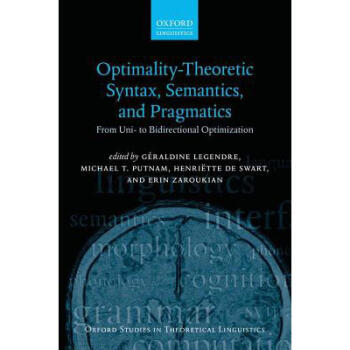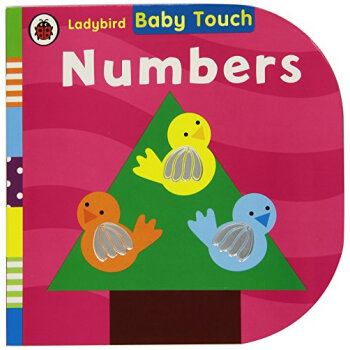![Emma爱玛 英文原版 [平装]](https://pic.windowsfront.com/19017050/rBEhWVKhykAIAAAAAA_ZKWMrE14AAGcewOLPb0AD9lB170.jpg)

具体描述
编辑推荐
Emma, when first published in 1816, was written when Jane Austen was at the height of her powers. In it, we have her two greatest comic creations -- the eccentric Mr. Woodhouse and that quintissential bore, Miss Bates. In it, too, we have her most profound characterization: the witty, imaginative, self-deluded Emma, a heroine the author declared "no one but myself will much like," but who has been much loved by generations of readers. Delightfull funny, full of rich irony, Emma is regarded as one of Jane Austen's finest achievements.内容简介
As daughter of the richest, most important man in the small provincial village of Highbury, Emma Woodhouse is firmly convinced that it is her right--perhaps even her "duty"--to arrange the lives of others. Considered by most critics to be Austen's most technically brilliant achievement, "Emma" sparkles with ironic insights into self-deception, self-discovery, and the interplay of love and power.作者简介
Jane Austen was born on December 16, 1775 at Steventon near Basingstoke, the seventh child of the rector of the parish. She lived with her family at Steventon until they moved to Bath when her father retired in 1801. After his death in 1805, she moved around with her mother; in 1809, they settled in Chawton, near Alton, Hampshire. Here she remained, except for a few visits to London, until in May 1817 she moved to Winchester to be near her doctor. There she died on July 18, 1817.As a girl Jane Austen wrote stories, including burlesques of popular romances. Her works were only published after much revision, four novels being published in her lifetime. These are Sense and Sensibility (1811), Pride and Prejudice (1813), Mansfield Park (1814) and Emma (1816). Two other novels, Northanger Abbey and Persuasion, were published posthumously in 1818 with a biographical notice by her brother, Henry Austen, the first formal announcement of her authorship. Persuasion was written in a race against failing health in 1815-16. She also left two earlier compositions, a short epistolary novel, Lady Susan, and an unfinished novel, The Watsons. At the time of her death, she was working on a new novel, Sanditon, a fragmentary draft of which survives.
简·奥斯汀,是英国著名女性小说家,她的作品主要关注乡绅家庭女性的婚姻和生活,以女性特有的细致入微的观察力和活泼风趣的文字真实地描绘了她周围世界的小天地。
内页插图
精彩书摘
Chapter IEMMA WOODHOUSE, handsome, clever, and rich, with a comfortable home and happy disposition seemed to unite some of the best blessings of existence; and had lived nearly twenty-one years in the world with very little to distress or vex her.
She was the youngest of the two daughters of a most affectionate, indulgent father; and had, in consequence of her sister's marriage, been mistress of his house from a very early period. Her mother had died too long ago for her to have more than an indistinct remembrance of her caresses; and her place had been supplied by an excellent woman as governess, who had fallen little short of a mother in affection.
Sixteen years had Miss Taylor been in Mr. Woodhouse's family, less as a governess than a friend, very fond of both daughters, but particularly of Emma. Between them it was more the intimacy of sisters. Even before Miss Taylor had ceased to hold the nominal office of governess, the mildness of her temper had hardly allowed her to impose any restraint; and the shadow of authority being now long passed away, they had been living together as friend and friend very mutually attached, and Emma doing just what she liked; highly esteeming Miss Taylor's judgment, but directed chiefly by her own.
The real evils, indeed, of Emma's situation were the power of having rather too much her own way, and a disposition to think a little too well of herself: these were the disadvantages which threatened alloy to her many enjoyments. The danger, however, was at present so unperceived, that they did not by any means rank as misfortunes with her.
Sorrow came-a gentle sorrow-but not at all in the shape of any disagreeable consciousness. Miss Taylor married. It was Miss Taylor's loss which first brought grief. It was on the wedding day of this beloved friend that Emma first sat in mournful thought of any continuance. The wedding over, and the bride people gone, her father and herself were left to dine together, with no prospect of a third to cheer a long evening. Her father composed himself to sleep after dinner, as usual, and she had then only to sit and think of what she had lost.
The event had every promise of happiness for her friend. Mr. Weston was a man of unexceptionable character, easy fortune, suitable age, and pleasant manners; and there was some satisfaction in considering with what self-denying, generous friendship she had always wished and promoted the match; but it was a black morning's work for her. The want of Miss Taylor would be felt every hour of every day. She recalled her past kindness-the kindness, the affection of sixteen years-how she had taught and how she had played with her from five years old-how she had devoted all her powers to attach and amuse her in health-and how nursed her through the various illnesses of childhood. A large debt of gratitude was owing here; but the intercourse of the last seven years, the equal footing and perfect unreserve which had soon followed Isabella's marriage, on their being left to each other, was yet a dearer, tenderer recollection. She had been a friend and companion such as few possessed; intelligent, well-informed, useful, gentle, knowing all the ways of the family, interested in all its concerns, and peculiarly interested in herself, in every pleasure, every scheme of hers; one to whom she could speak every thought as it arose, and who had such an affection for her as could never find fault.
How was she to bear the change? It was true that her friend was going only half a mile from them; but Emma was aware that great must be the difference between a Mrs. Weston, only half a mile from them, and a Miss Taylor in the house; and with all her advantages, natural and domestic, she was now in great danger of suffering from intellectual solitude. She dearly loved her father, but he was no companion for her. He could not meet her in conversation, rational or playful.
The evil of the actual disparity in their ages (and Mr. Woodhouse had not married early) was much increased by his constitution and habits; for having been a valetudinarian all his life, without activity of mind or body, he was a much older man in ways than in years; and though everywhere beloved for the friendliness of his heart and his amiable temper, his talents could not have recommended him at any time.
Her sister, though comparatively but little removed by matrimony, being settled in London, only sixteen miles off, was much beyond her daily reach; and many a long October and November evening must be struggled through at Hartfield, before Christmas brought the next visit from Isabella and her husband, and their little children, to fill the house, and give her pleasant society again.
Highbury, the large and populous village almost amounting to a town, to which Hartfield, in spite of its separate lawn, and shrubberies, and name, did really belong, afforded her no equals. The Woodhouses were first in consequence there. All looked up to them. She had many acquaintances in the place, for her father was universally civil, but not one among them who could be accepted in lieu of Miss Taylor for even half a day. It was a melancholy change; and Emma could not but sigh over it, and wish for impossible things, till her father awoke, and made it necessary to be cheerful. His spirits required support. He was a nervous man, easily depressed; fond of everybody that he was used to, and hating to part with them; hating change of every kind. Matrimony, as the origin of change, was always disagreeable; and he was by no means yet reconciled to his own daughter's marrying, nor could ever speak of her but with compassion, though it had been entirely a match of affection, when he was now obliged to part with Miss Taylor too; and from his habits of gentle selfishness, and of being never able to suppose that other people could feel differently from himself, he was very much disposed to think Miss Taylor had done as sad a thing for herself as for them, and would have been a great deal happier if she had spent all the rest of her life at Hartfield. Emma smiled and chatted as cheerfully as she could, to keep him from such thoughts; but when tea came, it was impossible for him not to say exactly as he had said at dinner:
"Poor Miss Taylor! I wish she were here again. What a pity it is that Mr. Weston ever thought of her!"
"I cannot agree with you, papa; you know I cannot. Mr. Weston is such a good-humoured, pleasant, excellent man, that he thoroughly deserves a good wife; and you would not have had Miss Taylor live with us for ever, and bear all my odd humours,1 when she might have a house of her own?"
"A house of her own! but where is the advantage of a house of her own? This is three times as large; and you have never any odd humours, my dear."
"How often we shall be going to see them, and they coming to see us! We shall be always meeting! We must begin; we must go and pay our wedding-visit very soon."
"My dear, how am I to get so far? Randalls is such a distance. I could not walk half so far."
"No, papa; nobody thought of your walking. We must go in the carriage, to be sure."
"The carriage! But James will not like to put the horses to for such a little way; and where are the poor horses to be while we are paying our visit?"
"They are to be put into Mr. Weston's stable, papa. You know we have settled all that already. We talked it all over with Mr. Weston last night. And as for James, you may be very sure he will always like going to Randalls, because of his daughter's being housemaid there. I only doubt whether he will ever take us anywhere else. That was your doing, papa. You got Hannah that good place. Nobody thought of Hannah till you mentioned her-James is so obliged to you!"
"I am very glad I did think of her. It was very lucky, for I would not have had poor James think himself slighted upon any account; and I am sure she will make a very good servant; she is a civil, pretty-spoken girl; I have a great opinion of her. Whenever I see her, she always curtseys and asks me how I do, in a very pretty manner; and when you have had her here to do needlework, I observe she always turns the lock of the door the right way and never bangs it. I am sure she will be an excellent servant; and it will be a great comfort to poor Miss Taylor to have somebody about her that she is used to see. Whenever James goes over to his daughter, you know, she will be hearing of us. He will be able to tell her how we all are."
Emma spared no exertions to maintain this happier flow of ideas, and hoped, by the help of backgammon, to get her father tolerably through the evening, and be attacked by no regrets but her own. The backgammon-table was placed; but a visitor immediately afterwards walked in and made it unnecessary.
Mr. Knightley, a sensible man about seven or eight-and-thirty, was not only a very old and intimate friend of the family, but particularly connected with it, as the elder brother of Isabella's husband. He lived about a mile from Highbury, was a frequent visitor, and always welcome, and at this time more welcome than usual, as coming directly from their mutual connections in London. He had returned to a late dinner after some days' absence, and now walked up to Hartfield to say that all were well in Brunswick Square. It was a happy circumstance, and animated Mr. Woodhouse for some time. Mr. Knightley had a cheerful manner, which always did him good; and his many inquiries after "poor Isabella" and her children were answered most satisfactorily. When this was over, Mr. Woodhouse gratefully observed:
"It is very kind of you, Mr. Knightley, to come out at this late hour to call upon us. I am afraid you must have had a shocking walk."
"Not at all, sir. It is a beautiful moonlight night; and so mild that I must draw back from your great fire."
"But you must have found it very damp and dirty. I wish you may not catch cold."
"Dirty, sir! Look at my shoes. Not a speck on them."
"Well: that is quite surprising, for we have had a vast deal of rain here. It rained dreadfully hard for half an hour while we were at breakfast. I wanted them to put off the wedding."
"By the bye, I have not wished you joy. Being pretty well aware of what sort of joy you must both be feeling, I have been in no hurry with my congratulations; but I hope it all went off tolerably well. How did you all behave? Who cried most?"
"Ah! poor Miss Taylor! 'tis a sad business."
"Poor Mr. and Miss Woodhouse, if you please; but I cannot possibly say 'poor Miss Taylor.' I have a great regard for you and Emma; but when it comes to the question of dependence or independence! at any rate, it must be better to have only one to please than two."
"Especially when one of those two is such a fanciful, troublesome creature!" said Emma playfully. "That is what you have in your head, I know-and what you would certainly say if my father were not by."
"I believe it is very true, my dear, indeed," said Mr. Woodhouse, with a sigh. "I am afraid I am sometimes very fanciful and troublesome."
"My dearest papa! You do not think I could mean you, or suppose Mr. Knightley to mean you. What a horrible idea! Oh, no! I meant only myself. Mr. Knightley loves to find fault with me, you know-in a joke-it is all a joke. We always say what we like to one another."
Mr. Knightley, in fact, was one of the few people who could see faults in Emma Woodhouse, and the only one who ever told her of them; and though this was not particularly agreeable to Emma herself, she knew it would be so much less so to her father, that she would not have him really suspect such a circumstance as her not being thought perfect by everybody.
"Emma knows I never flatter her," said Mr. Knightley, "but I meant no reflection on anybody. Miss Taylor has been used to have two persons to please; she will now have but one. The chances are that she must be a gainer."
"Well," said Emma, willing to let it pass, "you want to hear about the wedding; and I shall be happy to tell you, for we all behaved charmingly. Everybody was punctual, everybody in their best looks: not a tear, and hardly a long face to be seen. Oh, no; we all felt that we were going to be only half a mile apart, and were sure of meeting every day."
"Dear Emma bears everything so well," said her father. "But, Mr. Knightley, she is really very sorry to lose poor Miss Taylor, and I am sure she will miss her more than she thinks for."
Emma turned away her head, divided between tears and smiles.
"It is impossible that Emma should not miss such a companion," said Mr. Knightley. "We should not like her so well as we do, sir, if we could suppose it: but she knows how much the marriage is to Miss Taylor's advantage; she knows how very acceptable it must be, at Miss Taylor's time of life, to be settled in a home of her own, and how important to her to be secure of a comfortable provision, and therefore cannot allow herself to feel so much pain as pleasure. Every friend of Miss Taylor must be glad to have her so happily married."
"And you have forgotten one matter of joy to me," said Emma, "and a very considerable one-that I made the match myself. I made the match, you know, four years ago; and to have it take place, and be proved in the right, when so many people said Mr. Weston would never marry again, may comfort me for anything."
Mr. Knightley shook his head at her. Her father fondly replied, "Ah! my dear, I wish you would not make matches and foretell things, for whatever you say always comes to pass. Pray do not make any more matches."
用户评价
《爱玛》这本书,让我体验到了一种非常独特的阅读乐趣,仿佛置身于一场精心设计的戏剧之中。爱玛,这位年轻又充满活力的女主角,她的生活哲学就是“创造幸福”。她认为自己有能力为身边的人牵线搭桥,安排完美的姻缘。然而,她的“好意”往往适得其反,引发了一连串啼笑皆非的误会和意外。我喜欢作者对人物性格的刻画,爱玛的聪明与冲动并存,她的自信与自我中心让她常常陷入困境,但她并非一个令人厌烦的角色,反而因为她的真实和可爱,让人忍不住想要继续跟随她。书中对不同人物关系的描写,也十分精妙。爱玛与她的家庭,她与她的朋友,以及她与奈特利先生之间复杂而又微妙的情感纠葛,都展现得淋漓尽致。奈特利先生是爱玛的“解语花”,他能够看到爱玛的优点,也能指出她的缺点,他用一种温和而坚定的方式,引导着爱玛走向成熟。这本书的语言风格,充满了优雅和智慧,即使在描绘那些略带讽刺的场景时,也显得不动声色,引人深思。读完之后,你会发现,原来生活中的许多道理,都隐藏在这些看似平凡的对话和事件之中。
评分这本书的阅读体验,可以说是一场优雅的智力游戏。爱玛伍德豪斯,一个拥有美貌、财富和聪慧头脑的年轻女子,却沉迷于充当“媒人”的角色,热衷于为身边的人安排幸福。这种“上帝视角”的干预,在她的世界里几乎无处不在,而她自诩的洞察力,往往是建立在自我中心的误判之上。我特别欣赏作者如何通过爱玛的视角,不动声色地展现她性格中的盲点。她对哈丽特·史密斯的“改造”计划,对弗兰克·丘奇的误解,以及对奈特利先生的看法,都充满了她自己的想象和预设。每一次爱玛的“神助攻”都弄巧成拙,引出一连串啼笑皆非的误会,但这种错误并非源于恶意,而是源于她未经世事的娇纵和过于乐观的判断。奥斯汀的叙事技巧实在是高明,她并不直接告诉读者真相,而是通过人物对话、内心独白以及巧妙的旁观者视角,让读者自己去抽丝剥茧,去分辨事实与虚幻。阅读的过程,就像是在玩一个大型的猜谜游戏,充满了趣味性和挑战性。最终,当爱玛不得不面对自己犯下的错误,并从中成长时,那种顿悟和转变,又显得格外真诚和动人。
评分《爱玛》这本书,真是让人惊喜连连!我早就听说过简·奥斯汀的大名,但一直没有机会翻开她的作品,这次终于如愿以偿。英文原版《爱玛》平装本,触感温润,翻页时的沙沙声仿佛将我带回了那个遥远的英国乡村。爱玛这个角色,真是太鲜活了!她聪明、活泼,有着自己的小算盘,总觉得自己对一切了如指掌,却又常常因为过于自信而闹出笑话。看着她在社交圈里穿梭,为别人的婚事操心,结果自己却陷入了情感的迷宫,那种略带滑稽又让人心疼的感觉,真是难以言喻。我尤其喜欢她和奈特利先生之间的互动,那种亦敌亦友,既斗嘴又互相欣赏的张力,简直妙不可言。奥斯汀的语言真是太优美了,字里行间都充满了智慧和对人性的洞察。即使是那些看似琐碎的社交礼仪和家长里短,在她笔下也变得生动有趣,充满了生活的韵味。读这本书,我感觉自己仿佛也置身于那个时代,和爱玛一起经历她的喜怒哀乐。那种细腻的情感描写,让我对人物的内心世界有了更深的理解。这是一本值得反复品读的书,每一次重读,都能发现新的东西。
评分《爱玛》这本书,简直是一部关于人性和社会百态的精妙画卷。我被简·奥斯汀笔下那些鲜活的角色深深吸引。爱玛,这位年轻的女主角,她聪明伶俐,却也带着一丝小小的傲慢和任性。她总觉得自己看透了世情,能够左右别人的命运,却不曾想,她自己的命运也正悄悄地被安排着。书中对人物心理的刻画,细腻入微,令人拍案叫绝。特别是爱玛与奈特利先生之间那种既有分歧又有默契的对话,充满了智慧的火花和情感的暗流。奈特利先生的理性与成熟,与爱玛的冲动与不羁形成了鲜明的对比,也正是这种对比,让他们的关系显得更加引人入胜。我喜欢看爱玛如何从一次次的误判中醒悟,如何认识到自己真正的感情。她并非一个完美的角色,她的缺点让她更加真实,她的成长过程也更加令人信服。这本书不仅仅是一个爱情故事,它更是一面镜子,折射出那个时代女性的生活困境,以及她们在社会规范和个人情感之间的挣扎。奥斯汀的讽刺手法运用得炉火纯青,她用温和而犀利的方式,揭示了社会上的虚伪和浅薄,同时又歌颂了真诚与善良。
评分翻开这本《爱玛》,仿佛踏入了一个充满细节和人情味的古典世界。爱玛这个角色,无疑是全书的灵魂人物。她生活优渥,不必为生计担忧,于是将全部精力都投入到了“撮合”他人的事业中。她对朋友的关心,出发点是好的,但她总是习惯于用自己的标准去衡量一切,去规划别人的生活,却忽略了真正的感情是无法被强行安排的。我特别欣赏作者如何通过细腻的观察,展现爱玛性格中那些细微之处。她的自信,她的主观判断,她的偶尔的固执,都让她显得那样生动可爱,又惹人发笑。每一次她自以为是地为别人安排,结果却适得其反,都让我忍不住会心一笑。而奈特利先生,作为她最亲近也是最清醒的“监督者”,他的存在,恰恰是爱玛成长的催化剂。他一次次地点醒爱玛,让她看到自己的盲点,也让她逐渐认识到自己内心深处的情感。这本书的魅力,在于它不仅仅讲述了一个爱情故事,它更是在探讨关于成熟、关于自我认知、关于如何真正理解他人。奥斯汀的文字,就像一杯醇厚的红酒,初尝可能觉得有些寡淡,但细细品味,才能感受到其中丰富的层次和迷人的香气。
评分纸质**。。。。。。。。。。。。。。其他就不多说什么了
评分经典好书,为了出国要好好学习一把~
评分里面表达句式很好,对学习英语有帮助~~
评分一分钱一分货,重要的是内容
评分看看写的怎样
评分原版,印刷清晰,轻巧方便携带,正版。
评分一如既往地喜欢正版
评分英文经典名著,还没开始看
评分值得推荐的好书,经典!!
相关图书
本站所有内容均为互联网搜索引擎提供的公开搜索信息,本站不存储任何数据与内容,任何内容与数据均与本站无关,如有需要请联系相关搜索引擎包括但不限于百度,google,bing,sogou 等,本站所有链接都为正版商品购买链接。
© 2026 windowsfront.com All Rights Reserved. 静流书站 版权所有

![The Secret Garden 秘密花园 英文原版 [平装] [09--12] pdf epub mobi 电子书 下载](https://pic.windowsfront.com/19017057/17d4bf40-d04c-45d2-a027-9a554f88fea9.jpg)
![The Giver Quartet 《记忆传授者》四部曲 [12岁及以上] pdf epub mobi 电子书 下载](https://pic.windowsfront.com/19479213/54780bdcNf1835be5.jpg)

![Fancy Nancy Storybook Treasury 漂亮南希故事 英文原版 [精装] pdf epub mobi 电子书 下载](https://pic.windowsfront.com/19285537/550bf4f8Nc24addad.jpg)
![Gone With the Wind飘/乱世佳人 英文原版 [平装] pdf epub mobi 电子书 下载](https://pic.windowsfront.com/19477647/5397cb62Nb7c88a4f.jpg)
![Eerie Elementary#1:The School Is Alive!(A Branches Book)学乐桥梁书大树系列之伊尔瑞小学1:学校变活了! [平装] [6-8岁] pdf epub mobi 电子书 下载](https://pic.windowsfront.com/19530791/54dd6bf8Nd35ab2a7.jpg)
![Recess Is a Jungle!: A Branches Book (Eerie Elementary #3) : A Branches Book 英文原版 [6-8岁] [学乐桥梁书大树系列之伊尔瑞小学3:课间休息成了恐怖丛林!] pdf epub mobi 电子书 下载](https://pic.windowsfront.com/19573730/569c9b4aNc98cd112.jpg)
![The Science Fair Is Freaky! (Eerie Elementary #4) :?A Branches Book [学乐桥梁书大树系列之伊尔瑞小学4:科学展览太古怪了!] pdf epub mobi 电子书 下载](https://pic.windowsfront.com/19666362/57b12757N14a69ef4.jpg)
![School Freezes Over! A Branches Book (Eerie Elementary #5) 结冰的学校!:分支书 (怪诞小学?#5) 英文原版 [6-8岁] pdf epub mobi 电子书 下载](https://pic.windowsfront.com/19947236/58a5402aNa9e1a699.jpg)
![Clifford the Firehouse Dog消防员克里弗 英文原版 [平装] [3-8岁] pdf epub mobi 电子书 下载](https://pic.windowsfront.com/19000539/773e3c14-cb74-4599-b53e-4d15581831c9.jpg)




![The Case of Beasts Explore the Film 神奇动物在哪里电影魔法书 英文原版 [精装] pdf epub mobi 电子书 下载](https://pic.windowsfront.com/19663464/5af94fa8N33520dd6.jpg)
![Ten Apples Up on Top! Board Book 苏斯博士:头上的10个苹果(卡板书) 英文原版 [平装] [2岁及以上] pdf epub mobi 电子书 下载](https://pic.windowsfront.com/19016297/d3d57542-5572-4a17-a6ff-ab8142a289da.jpg)
![Moby-Dick莫比迪克/白鲸 英文原版 [平装] pdf epub mobi 电子书 下载](https://pic.windowsfront.com/19017148/c855b8f6-4891-4dda-b580-5e8d43ce9384.jpg)
![Sherlock Holmes, Vol, 1: The Complete Novels and Stories 福尔摩斯探案集1 英文原版 [平装] pdf epub mobi 电子书 下载](https://pic.windowsfront.com/19017093/rBEQYFGUU0wIAAAAAACxF_QdfVoAABR0gFX1poAALEv140.jpg)

![Baby Touch: Shapes 宝宝触摸书:形状 英文原版 [平装] [0-2岁] pdf epub mobi 电子书 下载](https://pic.windowsfront.com/19475679/rBEhV1MmsCAIAAAAAACQB1ku1q0AAKX0QGjrQ4AAJAf866.jpg)